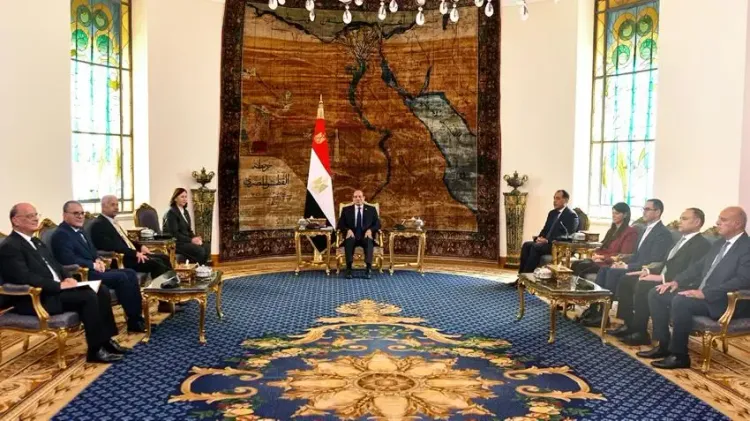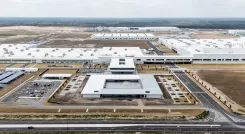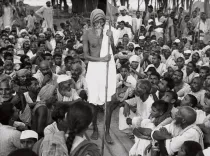How Are Egypt and Tunisia Strengthening Their Ties?

Synopsis
Key Takeaways
- Strengthening bilateral relations is a priority for Egypt and Tunisia.
- The Joint Higher Committee will facilitate collaboration in various sectors.
- Both countries aim to address regional challenges together.
- Private sector involvement is crucial for development projects.
- This meeting occurs amid heightened tensions in the Middle East.
Cairo, Sep 11 (NationPress) Egyptian President Abdel-Fattah al-Sisi engaged in discussions with Tunisian Prime Minister Sarra Zaafrani Zenzri in Cairo to explore avenues for strengthening bilateral ties and enhancing regional coordination, according to a statement from the Egyptian presidency.
Both leaders concurred on the necessity of advancing collaborative efforts across various sectors, particularly with the upcoming 18th session of the Joint Higher Committee in Cairo, which serves as a crucial platform for deepening cooperation and identifying new opportunities for integration, especially in trade and investment.
Sisi and Zenzri emphasized the importance of bolstering coordination between their nations to tackle the challenges confronting the region and to work towards resolving ongoing regional crises.
Additionally, they highlighted the significance of motivating the private sectors in both Egypt and Tunisia to engage in joint development initiatives across Africa, thereby enhancing their presence within the regional context.
The Egyptian-Tunisian Joint Higher Committee meetings are set to commence at Egypt's New Administrative Capital on Thursday, with the opening session co-chaired by the prime ministers of both nations, as reported by Xinhua news agency.
These meetings, including sessions of the Egyptian-Tunisian Business Council, are expected to address areas of cooperation like renewable energy, digital transformation, agriculture, and transportation, while also reviewing new investment opportunities for the private sector.
This dialogue unfolds amid escalating tensions in the Middle East.
In this context, Tunisia and Iran expressed their support for the Palestinian cause and called for increased international action regarding the Gaza conflict during discussions in Tunis between their foreign ministers.
Tunisian Foreign Minister Mohamed Ali Nafti indicated after his meeting with Iranian counterpart Seyed Abbas Araghchi that the two nations are committed to enhancing cooperation in trade, healthcare, and additional sectors, as per the state news agency TAP.
Nafti reiterated Tunisia's solidarity with Iran against threats to the Arab-Islamic region and praised Tehran's renewed collaboration with the International Atomic Energy Agency as a positive step towards reducing regional tensions.
Araghchi, currently on a working visit to Tunis, characterized the relations with Tunisia as fraternal and solid. He expressed their shared commitment to expanding economic, scientific, and cultural connections and announced plans to convene the joint economic commission soon, extending an invitation to Nafti to visit Tehran.









